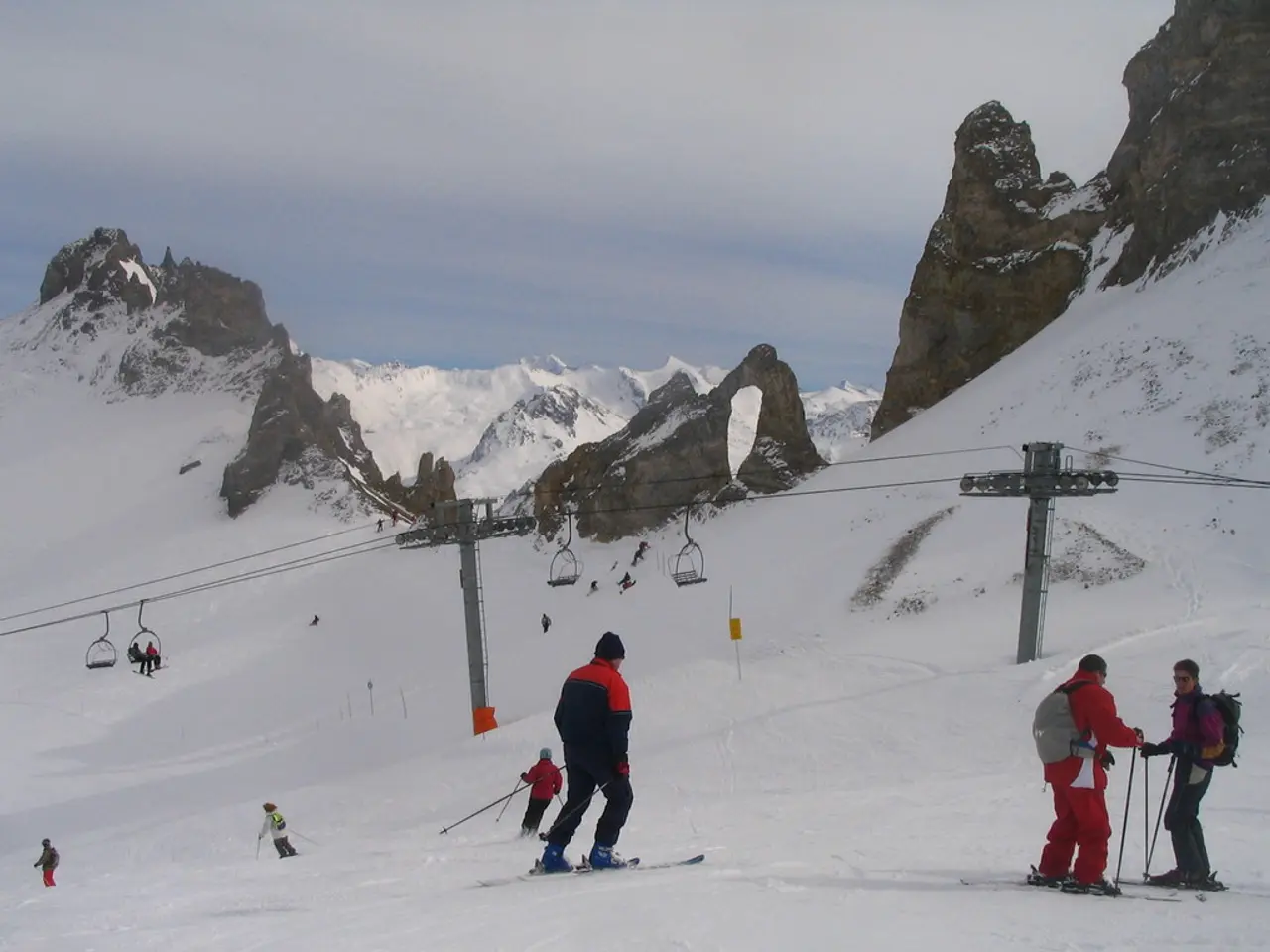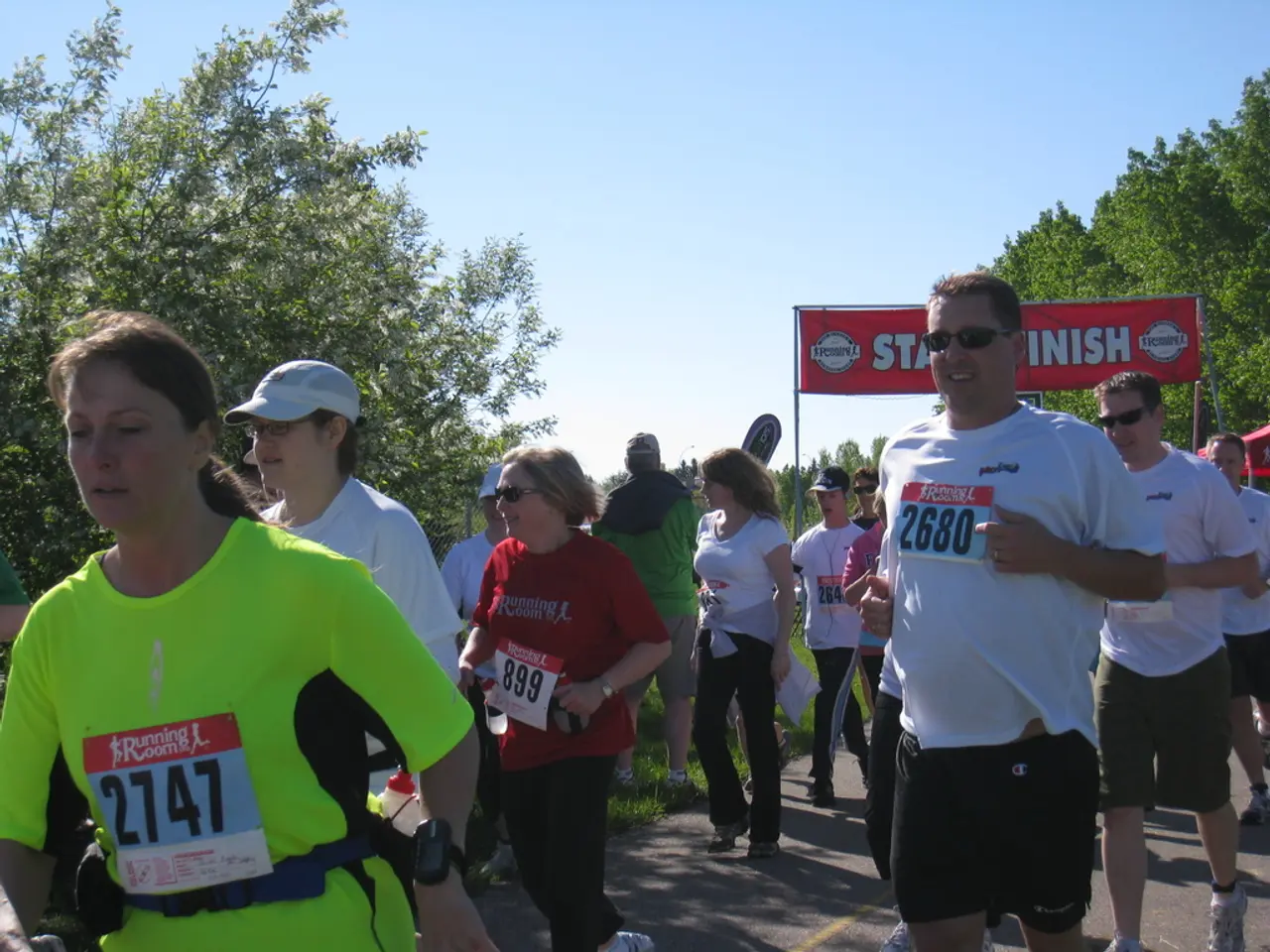Daring hikers disregard personal safety - "Pursuing the adrenaline rush"
The picturesque Harz region, located in Saxony-Anhalt, Germany, is a popular destination for hiking enthusiasts. Yet, the mountain rescue service in this region has been responding to numerous incidents this year, highlighting the need for hikers to exercise caution.
With around 120 men and women engaged in the Harz mountain rescue service, 46 of them being active, the team is the northernmost mountain rescue service in Germany, belonging to the German Red Cross. The service, consisting of one main group each in Thale and Wernigerode, a supporting group in Halberstadt, and a specialized "Cave Rescue" group, has had to respond to various incidents, including air rescues by winch from rough terrain and guiding lost hikers out of gorges at night with ropes.
In mid-April, a climber escaped with serious injuries after falling about ten meters at the Großer Feuerstein near Wernigerode. This incident underscores the importance of safety precautions, especially during evening hikes.
To ensure a safe hiking experience, it is crucial to plan ahead and inform others about your route and expected return time. Starting your hike early enough to finish before nightfall is also advisable.
Carrying adequate lighting is another essential measure. A reliable headlamp or flashlight with extra batteries should be carried since visibility drops quickly after sunset. Using trail maps and navigation tools can also help avoid getting lost. Sticking to marked trails reduces the risk of accidents or disorientation.
Checking weather conditions is equally important. Be aware of the latest weather forecast and avoid hiking if heavy fog, rain, or storms are expected. Dressing in layers to stay warm as temperatures often drop in the evening and wearing sturdy, well-fitting hiking boots for good traction are also recommended.
Carrying emergency supplies such as a whistle, first aid kit, extra food and water, and a fully charged mobile phone is essential. Being mindful of wildlife and terrain, using caution on uneven or rocky terrain, especially when visibility is limited, and keeping an eye out for wildlife, which can be more active at dusk, are other precautions to consider.
Whenever possible, avoid hiking alone in the evening to ensure mutual support in case of emergencies. By following these precautions, hikers can significantly reduce the risk of accidents during evening hikes in the Harz Mountains.
However, the mountain rescue service spokesperson, Matthes Kirmann, finds that many hikers, climbers, and cyclists in the Harz are reckless, going without proper equipment or preparation. Kirmann finds the indifference or thrill-seeking attitude of some hikers towards the weather particularly annoying.
In the first half of this year, there were 44 incidents in the Harz, with 27 occurring in Wernigerode and 17 in Thale. Three such air rescues have been conducted in the Harz this year, and unfortunately, a mountain biker without a helmet died from injuries at the Gelber Brink mountain pass in June.
Despite these challenges, the youth group for recruiting new members currently consists of 12 members in the Harz mountain rescue service in Saxony-Anhalt. The Harz region remains a beautiful and adventurous destination for hiking, but with the right precautions and respect for the natural environment, everyone can enjoy a safe and memorable experience.
- The Harz Mountain rescue service has responded to numerous accidents this season, including guiding lost hikers at night and air rescues from rough terrain, underscoring the importance of safety precautions, especially during evening hikes.
- Despite the ongoing incidents in the region, the youth group for recruiting new members in the Harz mountain rescue service counts 12 members, highlighting that with the right precautions and respect for the natural environment, everyone can enjoy a safe and memorable hiking experience.




